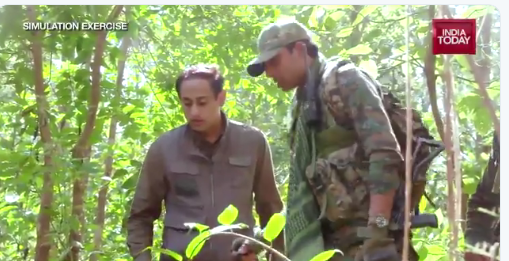Court protects identity of rape survivor
Privacy is a free speech issue and the media needs to get it right,more so if they report on minor victims of sexual violence. Moazum Mohammad reports on the order by the Jammu and Kashmir High Court.
Ordering YouTube, Facebook and Twitter to remove content which might reveal the identity and name of the three-year-old girl allegedly raped by her neighbour in Bandipora’s Sumbal area on May 8, 2019, the Jammu and Kashmir High Court directed the social media giants to ensure that no material disclosing the victim’s identity is uploaded on their channels.
The two-judge Bench led by J&K High Court chief justice Gita Mittal and judge Tashi Rabstan on May 17, 2019, also issued notices to five Kashmir-based newspapers for disclosing the identity or using photos of the victim-survivor. The papers include three English dailies Kashmir Observer, Kashmir Vision, and Kashmir Glory and two Urdu dailies Daily Afaaq and Ilhaaq.
After taking suo moto cognisance, the court had directed Kashmir Inspector General of Police and Principal secretary medical education and health to file status reports about investigations, medical aid to the girl. Treating the case as PIL, it also appointed Farah Bashir amicus curiae for identifying media reports which disclosed identity of the girl. The horrific crime against the minor girl triggered widespread protests in Kashmir.
Farah pointed to the court the five newspapers had either disclosed the identity of the victim by either publishing photos or named the victim-survivor in their reports.
“The Registry shall also issue court notice without process fee to the Kashmir Observer, Kashmir Vision, Kashmir Glory, Urdu Daily Afaaq and Urdu daily Ilhaaq to show cause as to why action be not taken against them for the violations of Section 23 of POCSO Act committed by them as noted above returnable on May 28,” said two judges in its order. The proceedings were held at the residence of chief justice.
A publisher or media house, if found to be in contravention of section 23, is liable to be punished with imprisonment for a period ranging from six months to one year, or fine, or both. Likewise, section 228A of the Indian Penal Code also prohibits the publication of identity of a victim of a sexual offence, making any violation punishable with a maximum of two years imprisonment along with imposition of fine.
Pointing to the government’s responsibility of raising awareness about the POCSO Act, the judges directed the Information Department to present a report about measures taken. The provision section 44 casts a duty upon the government to provide wide publicity through mass communication including television, radio and print media at regular intervals to make the general public, children and parents and guardians aware about the law.
“The media has to circumvent in reporting to the extent it is in contravention of law. Freedom of press has to be balanced with the integrity of the judicial process, and must comport with the requirements of the law,” the court had observed.
It is worth remembering that High Court of Delhi had issued notice and imposed a fine of Rs 10 lakh each on 12 media houses in April 2018 for disclosing the identity of the young victim of what came to be known as the ‘Kathua case’. The fine so collected was to be contributed to the Jammu and Kashmir Victim Compensation Scheme.
Related






Commentaries